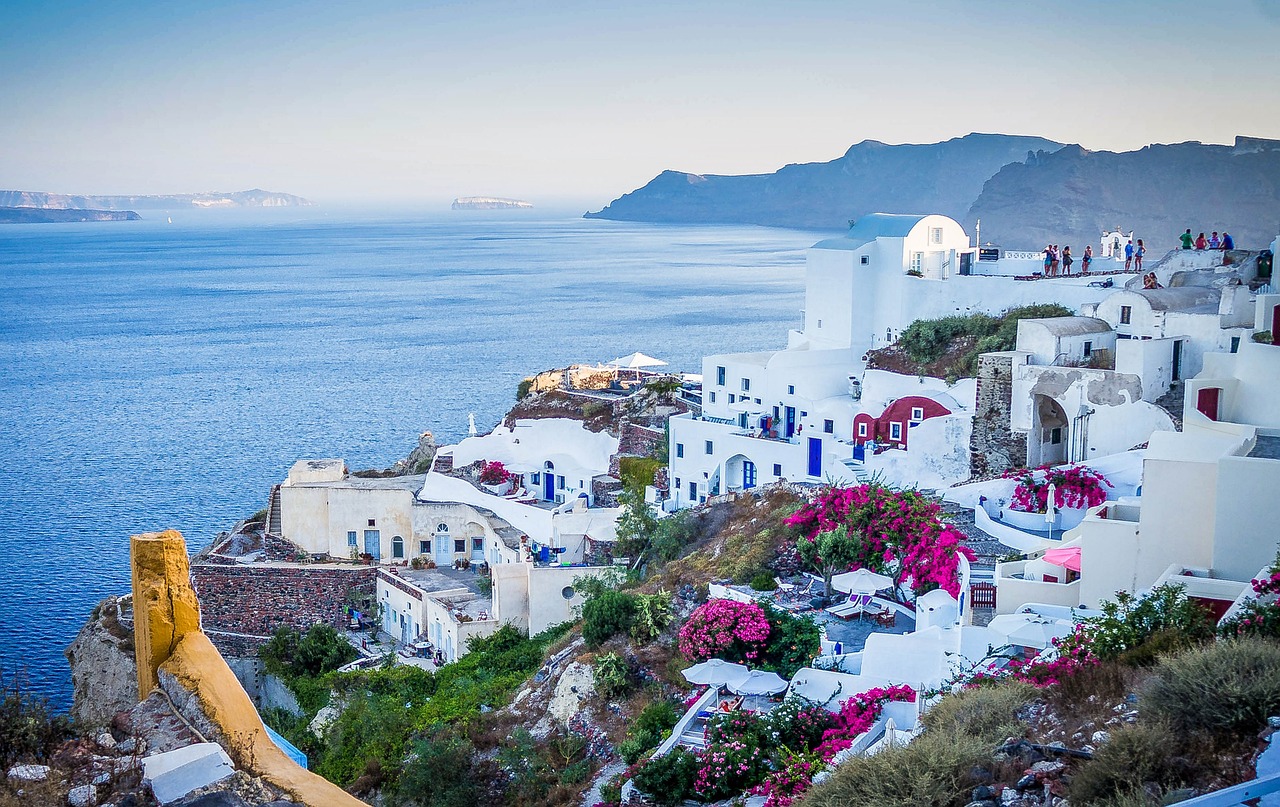Local Celebrations and Holidays: What to Expect in Greece
Greece is a country rich in culture and tradition, and this is evident in its numerous local celebrations and holidays. From religious festivals to national observances, Greeks take pride in their heritage and come together to commemorate various occasions throughout the year. These celebrations offer a unique insight into Greek customs, cuisine, music, and dance. In this article, we will explore some of the most prominent local celebrations and holidays in Greece, providing you with an overview of what to expect and experience during your visit.
Section 1: Easter
Easter is the most important religious holiday in Greece, and it is celebrated with great enthusiasm and devotion. The Greek Orthodox Church follows the Julian calendar, so Easter usually falls on a different date than in Western Christianity. The festivities begin on Holy Week, with various religious processions and ceremonies taking place in churches across the country. On Holy Thursday, locals participate in the tradition of dyeing eggs red, symbolizing the blood of Christ. On Good Friday, somber processions are held, with mournful hymns and the symbolic representation of Christ’s burial. Easter Sunday is the highlight of the celebration, with midnight church services, fireworks, and the breaking of the Lenten fast with a feast of lamb and traditional Greek dishes.
- Midnight Church Services: Attending a midnight church service is a must during Easter in Greece. The atmosphere is filled with anticipation and excitement as the Resurrection is announced, and the church bells ring joyously.
- Fireworks: Fireworks light up the sky on Easter Sunday, creating a magical display of colors and adding to the festive ambiance.
- Feasting: Greeks gather with family and friends to enjoy a feast of roasted lamb, traditional Easter bread called “tsoureki,” and other delicacies.
- Egg Cracking Game: Participate in the traditional egg cracking game, where two people tap their eggs together, and the one with the uncracked egg is considered the winner and believed to have good luck for the year.
Section 2: Carnival
Carnival, known as “Apokries” in Greek, is a festive season leading up to Lent. It is a time of revelry, costumes, and indulgence before the fasting period begins. The most famous Carnival celebration in Greece takes place in the city of Patras, where people from all over the country flock to join the festivities. Parades, masquerade parties, and street performances are common during Carnival, with locals and visitors alike dressing up in elaborate costumes and masks. The highlight of the Carnival season is the Grand Parade, featuring floats, music, and dancing.
- Costume Parties: Join in the fun by attending a costume party, where you can dress up as anything you desire and immerse yourself in the Carnival spirit.
- Street Performances: Wander through the streets and enjoy the vibrant atmosphere created by street performers, musicians, and dancers.
- Grand Parade: Don’t miss the spectacular Grand Parade, where colorful floats, music, and dancing take over the streets, captivating the crowd.
- Traditional Carnival Treats: Indulge in traditional Carnival treats, such as “loukoumades” (honey dumplings) and “tyropitakia” (cheese pies), which are commonly enjoyed during this festive season.
Section 3: Independence Day
Independence Day, also known as “Ohi Day,” is a national holiday in Greece celebrated on October 28th. It commemorates Greece’s refusal to surrender to the Axis powers during World War II. The day is marked by various events and parades held throughout the country, with the largest and most significant taking place in Athens. The highlight of the celebrations is the military parade, showcasing the Greek Armed Forces and honoring the country’s heroes.
Greece Image 1:

- Military Parade: Witness the impressive display of military prowess during the grand parade in Athens, where the Greek Armed Forces march in precision and honor the heroes of the past.
- Wreath-Laying Ceremonies: Pay your respects by attending wreath-laying ceremonies held at war memorials and monuments across the country.
- Public Gatherings: Join locals in public gatherings and demonstrations that celebrate Greece’s independence and honor the spirit of resistance.
- Firework Displays: Enjoy breathtaking firework displays that light up the night sky, adding to the festive atmosphere of Independence Day.
Section 4: Panigiri Festivals
Panigiri festivals are traditional celebrations held in villages and towns throughout Greece, dedicated to the patron saint of the local church. These festivals combine religious devotion with lively festivities, offering visitors a glimpse into the heart of Greek culture. Panigiri festivals typically include religious processions, live music, traditional dances, and abundant feasting.
- Religious Processions: Witness the locals carrying the icon of the patron saint through the streets in a solemn religious procession, accompanied by prayers and hymns.
- Traditional Music and Dance: Immerse yourself in the vibrant atmosphere created by live music performances and traditional Greek dances, where locals and visitors dance together in celebration.
- Food and Drinks: Sample a variety of traditional Greek dishes, such as souvlaki, moussaka, and baklava, as well as local wine and spirits.
- Arts and Crafts: Explore stalls selling handmade crafts, jewelry, and traditional Greek products, providing an opportunity to take home unique souvenirs.
Section 5: Christmas
Christmas is a joyous and festive time in Greece, celebrated with religious traditions and customs. The holiday season begins on December 6th, with the Feast of Saint Nicholas, and culminates on Christmas Day. Greeks decorate their homes with lights, ornaments, and Christmas trees, and the streets are adorned with festive decorations. Traditional Greek carols, known as “kalanda,” are sung by children who go door to door, spreading holiday cheer.
- Christmas Markets: Explore the charming Christmas markets, where you can find handmade crafts, local delicacies, and unique gifts.
- Midnight Church Services: Attend a midnight church service on Christmas Eve, where the birth of Christ is celebrated with beautiful hymns and candlelight.
- Traditional Christmas Feast: Join locals in savoring a festive Christmas meal, which often includes roast pork, stuffed turkey, and a variety of Greek sweets.
- New Year’s Eve Celebrations: Experience the lively New Year’s Eve celebrations, with fireworks, parties, and music filling the air as Greeks welcome the arrival of the new year.
Section 6: Greek Orthodox Easter
Greek Orthodox Easter is a significant religious and cultural event in Greece, celebrated with unique traditions and rituals. The date of Easter in the Greek Orthodox Church is determined by a combination of the lunar calendar and specific calculations. The preparations and customs leading up to Easter Sunday create a sense of anticipation and spiritual reflection.
Greece Image 2:

- Great Lent: Experience the solemnity of Great Lent, a period of fasting and spiritual introspection observed by many Greeks leading up to Easter.
- Epitaph Processions: Attend the Epitaph processions on Good Friday, where the symbolic tomb of Christ is carried through the streets, accompanied by mournful hymns.
- Midnight Resurrection: Participate in the midnight Resurrection service, where the joyous announcement of Christ’s resurrection is made, and the atmosphere is filled with light, music, and celebration.
- Traditional Easter Foods: Indulge in traditional Easter delicacies, such as “magiritsa” (a soup made from lamb offal), “kokoretsi” (grilled offal wrapped in intestines), and “tsoureki” (sweet bread).
Section 7: Name Days
In Greece, Name Days hold significant importance and are celebrated with joy and festivity. Each day of the year is associated with a specific saint, and individuals named after that saint celebrate their Name Day. Name Days are often celebrated with family gatherings, feasting, and gift-giving.
- Family Gatherings: Join in the warm and intimate family gatherings, where loved ones come together to celebrate and honor those with a Name Day.
- Feasting: Enjoy a delicious meal prepared by the family, with traditional dishes and desserts that vary depending on the region and the saint being celebrated.
- Gift-Giving: It is customary to offer small gifts or tokens of appreciation to the person celebrating their Name Day, as a way of honoring their special day.
- Religious Observances: Some individuals may choose to attend church services or light candles in honor of their patron saint on their Name Day.
Section 8: Clean Monday
Clean Monday, also known as “Kathara Deftera,” marks the beginning of Lent in Greece. It is a day of outdoor activities, picnics, and the consumption of Lenten foods. Clean Monday is celebrated with kite flying, traditional games, and gatherings in nature.
- Kite Flying: Join in the tradition of flying colorful kites, with the sky filling up with vibrant shapes and designs.
- Picnics and Outdoor Activities: Enjoy a day in nature with family and friends, indulging in picnics filled with vegetarian dishes, playing games, and taking part in group activities.
- Traditional Lenten Foods: Sample a variety of delicious Lenten foods, such as “lagana” (a special flatbread), olives, pickled vegetables, and shellfish.
- Live Music and Dancing: Experience the lively atmosphere created by live music performances and traditional Greek dances, as people come together to celebrate Clean Monday.
Section 9: Feast of the Assumption
The Feast of the Assumption, also known as the Dormition of the Virgin Mary, is a significant religious holiday in Greece. It commemorates the bodily taking up of the Virgin Mary into Heaven at the end of her earthly life. The day is marked by religious processions, church services, and feasting.
Greece Image 3:

- Religious Processions: Witness the solemn processions, where the icon of the Virgin Mary is carried through the streets, accompanied by prayers and hymns.
- Church Services: Attend special church services dedicated to the Feast of the Assumption, where the faithful come together to honor the Virgin Mary.
- Traditional Feasting: Join in the feasting and enjoy a variety of traditional Greek dishes, such as “dolmades” (stuffed grape leaves), “spanakopita” (spinach pie), and “galaktoboureko” (a sweet custard pastry).
- Firework Displays: Celebrate the Feast of the Assumption with mesmerizing firework displays that illuminate the night sky.
Section 10: Oxi Day
Oxi Day, meaning “No Day,” is celebrated on October 28th and commemorates Greece’s refusal to surrender to the Axis powers during World War II. The day holds great historical and patriotic significance for Greeks, and it is marked by parades, school ceremonies, and military displays.
- Parades: Attend the parades held across the country, where students, military personnel, and various organizations march in honor of Greece’s resistance.
- Flag-Waving: Join the locals in waving Greek flags, symbolizing unity, pride, and the spirit of resistance.
- Patriotic Speeches: Listen to patriotic speeches delivered by politicians, veterans, and community leaders, reflecting on Greece’s history and the importance of Oxi Day.
- Traditional Dances: Experience the vibrant display of traditional Greek dances performed during the celebrations, showcasing the rich cultural heritage of Greece.
Section 11: Epiphany
Epiphany, also known as “Theophany,” is a religious holiday celebrated on January 6th in Greece. It commemorates the baptism of Jesus in the Jordan River. The highlight of the day is the Blessing of the Waters ceremony, where a cross is thrown into the sea, and young men dive in to retrieve it, symbolizing the baptism of Christ.
- Blessing of the Waters: Witness the Blessing of the Waters ceremony, which takes place near bodies of water, such as the sea or rivers. The priest throws a cross into the water, and young men dive in to retrieve it, competing to be the first to reach it.
- Traditional Dances and Music: Enjoy traditional Greek dances and music performed during the Epiphany celebrations, adding to the festive atmosphere.
- Feasting: Join in the feasting after the ceremony, with traditional dishes, such as “stuffed cabbage rolls” and “vassilopita” (New Year’s cake) being served.
- Religious Processions: Participate in religious processions held in churches across the country, accompanied by prayers and hymns.
Section 12: References
– Easter: www.greeka.com
– Carnival: www.visitgreece.gr
– Independence Day: www.athensattica.gr
– Panigiri Festivals: www.discovergreece.com
– Christmas: www.athensvoice.gr
– Greek Orthodox Easter: www.greeka.com
– Name Days: www.greekboston.com
– Clean Monday: www.greeka.com
– Feast of the Assumption: www.greekboston.com
– Oxi Day: www.greece-is.com
– Epiphany: www.discovergreece.com


